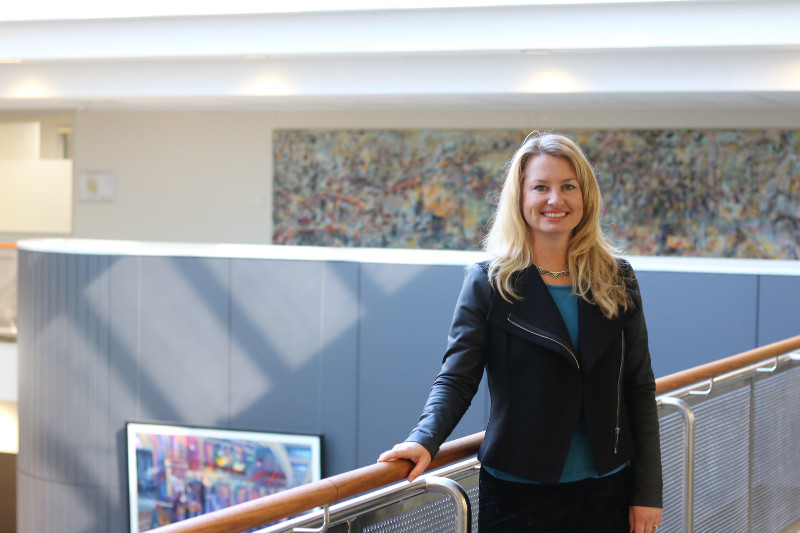Researcher Highlights
Enabling approaches to access and success at university through inclusive design and evaluation
Dr Anna Bennett
Dr. Anna Bennett is Director of the Pathways and Academic Learning Support (PALS) Centre at the University of Newcastle, Australia, which offers higher education pathways, preparation programs and learning support for over 16,000 domestic and international students every year.

Her expertise lies in her deep knowledge of the pathways sector, inclusive and innovative approaches to program and curriculum design and student support, and the ability to recognise and address higher education trends and policies that enable change. Dr Bennett has a Phd in Sociology (UNSW), with publications and projects that explore inter/national higher education pathways, support, transitions and equity programs and their evaluation, and the policies that shape them. In 2020, Dr Bennett also worked with leaders in the field of equity across the higher education sector on the commissioned grant to understand 'Success from the Perspective of the Successful: Low SES Students, Success and Completion in Higher Education'.
Dr Bennett has also recently contributed new concepts that better enable all students to develop academic capability, and about the importance of pace and time in higher education courses to improve inclusion and retention. She also produced the Equity Initiatives Framework (EIF), another Department of Education commissioned international review of access and equity program impact, which focussed on the whole of the student learning journey, from access to postgraduate programs and learning support. The framework is used by the majority of Australian universities to guide and evaluate their access, transition and equity programs, and is outlined in a recent publication ‘Access and equity program provision-evaluation in Australian higher education: a what matters approach' Educational Research and Evaluation (2019).
Dr Anna Bennett works to identify the underlying powerful, but often ‘invisible’, educational approaches, course design and pedagogies that continue enduring problems and inequities in higher education. Identifying and disrupting these assumptions and habits is the goal of her research.
Dr Bennett believes we have a responsibility to put at the forefront of education the needs of the people they serve - to provide for them the types of programs and experiences they value. Programs and evaluation therefore need to be designed in highly responsive ways. Challenging outdated and socio-culturally biased assumptions at broader systematic and everyday levels is critical for ensuring that programs do not exclude and serve only small cohorts of students already more advantaged.
“Inclusion, diversity and responsiveness need to be front-and-centre of education and central to the responsive design and evaluation of it” Dr Bennett said.
“There are so many variables in people's backgrounds, contexts and destinations, and this changes considerably over time. Therefore, it is critical for us to appreciate this diversity, rather than impose 'one-size-fits all' structures. Continuous (re)design and evaluation processes enable us to ensure that learning experiences into, through and beyond an individual's education are engaging and meaningful".
Dr Bennett has led research on perceptions and experiences of capability, pace and time in higher education and their impact on diverse groups of students, including students from regional and rural areas. In a recent study, Capability Belonging and Equity in Higher Education (2015), Dr Bennett and colleagues found that there are serious consequences to deeply held, widespread assumptions and related stereotypes about who belongs and is capable in higher education. “Our notion of what constitutes capability, talent and potential is often very limiting for many students because we do not consider the wider impacts of socio-political and economic forces, students' broader relationships, locations, and cultural backgrounds. If we understand that capability is continuously developed in relation to context and that it can be nurtured in ways that value the wonderful individuality of each student, we can then become capable of improving student outcomes.” Dr Bennett said.
“We need to build responsive frameworks to serve our diverse populations" she added.
Evidence of Impact
Dr Bennett explains that evidence collected through a major national study she recently led shows that the most effective access and equity programs are student and stakeholder-centred and context-specific. Conducted with colleagues from the University of Melbourne and La Trobe University, the Equity Initiatives in Australian Higher Education study was commissioned by the Australian Government and identifies initiatives that provide evidence they are effective, from school outreach through to postgraduate programs.
“It was the first national review to capture effective initiatives across Australian higher education. Importantly, the study also shows that rigorous evaluation is very important for ensuring that money invested is money well spent” Dr Bennett said.
Dr Bennett is Director of the Pathways and Academic Learning Support (PALS) Centre at the University of Newcastle.
“I am proud of the outstanding outcomes from our rich history of programs that have provided 60,000 students with access to enabling education for almost 50 years, as well as our English language and International learning support programs and services which are award winning and sector leading,” said Dr Bennett.
The University of Newcastle acknowledges the traditional custodians of the lands within our footprint areas: Awabakal, Darkinjung, Biripai, Worimi, Wonnarua, and Eora Nations. We also pay respect to the wisdom of our Elders past and present.
